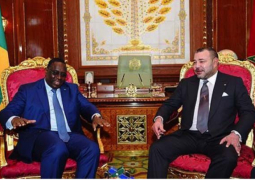A one-day dissemination seminar on Foreign Private Capital Transactions with special focus on the impact of global financial and economic crisis on investment in The Gambia was on Wednesday 21st October held at the Paradise Suites Hotel.
Organised by the Balance of Payment Technical Committee of the Central Bank of The Gambia, in collaboration with the West African Institute for Financial and Economic Management (WAIFEM), the seminar brought together senior members of the private and public sector, including bankers, insurers, hoteliers, members of the GCCI, real estate dealers, among others.
In a statement read on his behalf by the 1st Deputy Governor, Mr. bamba Saho, the Governor of the Central Bank of The Gambia said that international and national data have shown that private investment has been on the increase since the 1990s, relative to the size of the Gambian economy and official aid flows.
This, Governor Saho stated, mainly reflects the growing reliance on the private sector as the engine of growth.
?The monetary consensus in March 2002 clearly established the importance of private international capital flows as the main source of external financing for developing countries,? Mr. Saho stated.
He added that prior to the global economic crises, growth performance in The Gambia was robust and the near term outlook broadly favourable.
?Economic growth averaged 6.5 percent during 2003-2007 stressing that growth decelerated to 6.5% in 2008, caused in large part by the negative impact of the crises on the services sector, the dominant sector of the Gambian economy?, Saho noted.
He further stated that the trade sector, in particular had contracted by 12.9% reflecting primarily the decline in export and retail trade. Despite this, he said, the rebound in agricultural output, growth in real GDP is projected at 3.6% in 2009, reflecting reduced foreign direct investment, tourism and remittance flows.
Also speaking on behalf of the Director-General of WAIFEM, Prof. Akpan Ekpo, the Director for Debt Management Department, Mr. Baba Y Yusuf said that the principal mandate of WAIFEM is to build sustainable capacity for macroeconomic and financial sector management in its constituent countries.
He said that WAIFEM has collaborated with Development Finance International (DFI) in this third cycle to ensure capacity for monitoring private flows in The Gambia.
According to him, his institution and DFI has jointly undertaken demand assessment missions in The Gambia in order to determine FPC capacity gaps, facilitate open awareness training workshop, assist in designing, reviewing, administering questionnaires and to also take active part in collecting, analysing and presenting data for analytical purposes, among others.
?To ensure that our programmes have a competitive edge, we have established a collaborative technical partnership with world class institutions involved in capacity building for economic and financial management?, he concluded.



